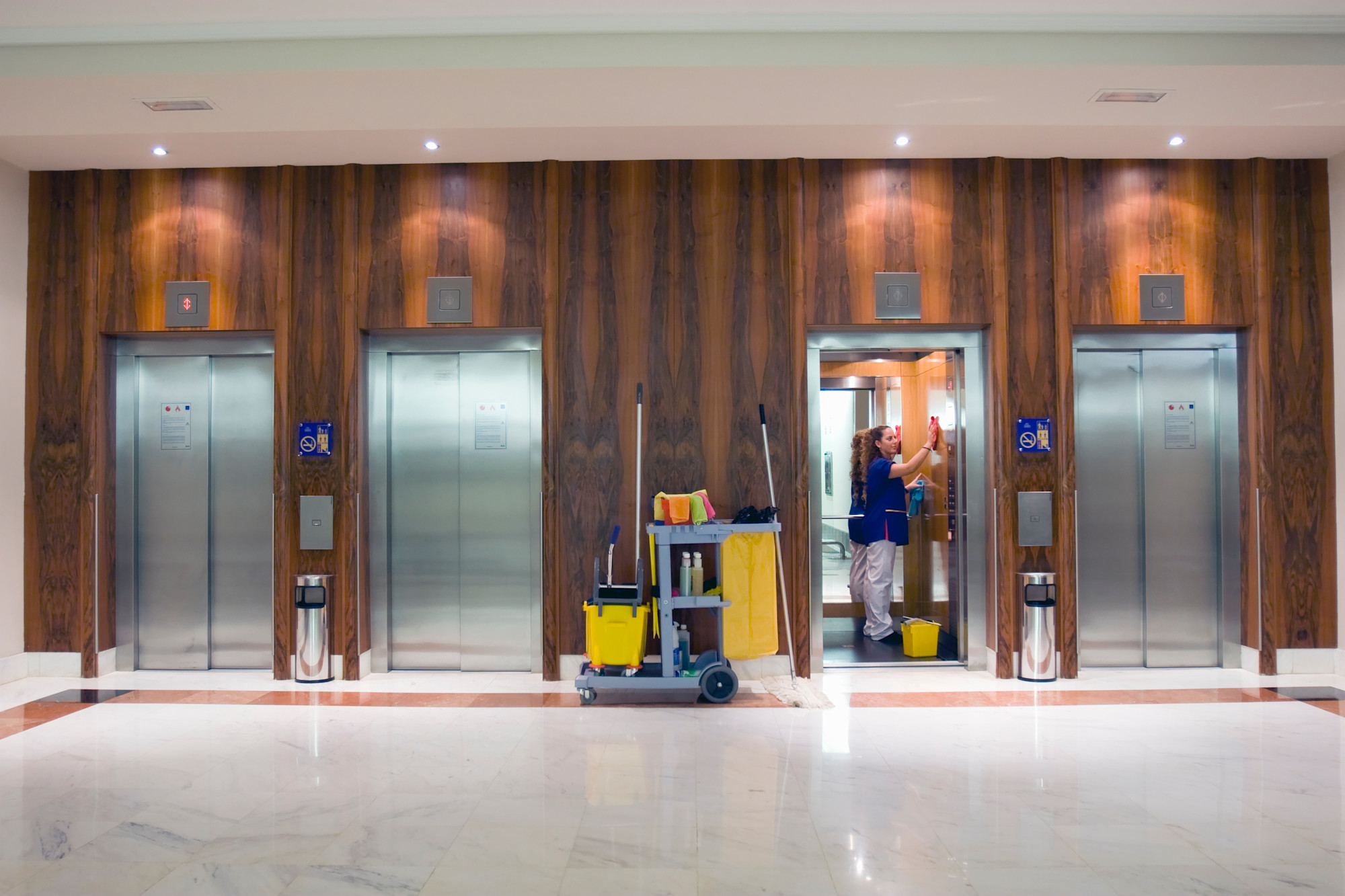Table of Contents
Table of Contents
- What are tax deductions for cleaning businesses?
- Why are tax deductions important for my cleaning business?
- What are the essential tax deductions for cleaning businesses in 2025?
- How can I track expenses for maximum tax savings?
- What are some common mistakes to avoid when claiming deductions?
- How can Aspire’s cleaning business software help me stay tax-ready?
- It’s your turn now
Tax deductions are crucial in helping cleaning business owners reduce their taxable income and increase profit margins.
However, many small businesses miss out on potential savings because they do not understand what expenses they can deduct.
This guide explains the top tax deductions for cleaning businesses in 2025, covering everything from cleaning supplies to home office expenses.
Understanding these deductions allows you to maximize your income tax savings and keep more of your hard-earned revenue. Read on to learn how to track and claim these deductions effectively.
What are tax deductions for cleaning businesses?
Tax deductions reduce your taxable income by subtracting qualifying business expenses from revenue to significantly lower your overall tax burden.
Deductions can be particularly impactful for small businesses or self-employment taxes if you are a one-person business.
→ Tax deductions lower the income subject to tax, whereas tax credits directly reduce the tax owed.
Individual taxpayers can itemize deductions to reduce their taxable income by utilizing various available deductions (each with different eligibility rules), including:
Medical expenses
Charitable contributions
Mortgage interest
Alternatively, they can take the standard deduction, which is a fixed amount.
Cleaning business owners can maximize their tax savings by knowing everyday deductible expenses, such as:
Business-related supplies
Travel
Home office expenses
Cleaning equipment and supplies
Expenses when traveling between job sites.
Tracking these expenses throughout the tax year ensures you claim every deduction you’re entitled and can make a significant difference in your tax return.
Why are tax deductions important for my cleaning business?
Tax deductions are crucial for cleaning business owners as they reduce taxable income, allowing you to keep more profit from generated revenue.
Eligible business expenses lower the amount of business income the IRS can tax, reducing a company's tax liability and freeing up more money to invest in the business.
Some of the benefits of reducing your business’s taxable income include:
Increasing cash flow to reinvest in growing your cleaning business
Avoiding overpayment by cultivating an understanding of your deductions
Efficient tax management leads to higher profitability over time
Cleaning business owners can optimize their financial health by taking advantage of these deductions.
What are the essential tax deductions for cleaning businesses in 2025?
Understanding which expenses qualify and how to claim them is crucial for making the most of these savings opportunities.
1. Vehicle expenses
Cleaning businesses need vehicles to transport their teams and equipment between customer properties; tax-deductible expenses include:
Mileage
Gas
Maintenance
Insurance
Depreciation
You can choose between the IRS standard mileage rate or actual expenses for vehicle deductions.
→ The standard mileage rate for car expenses is based on the miles driven for business. Actual expenses require tracking gas, repairs, and other costs.
Selecting the suitable method depends on your vehicle usage and the detailed expenses you can document.
2. Cleaning supplies and equipment
Cleaning businesses spend heavily on supplies, and these expenses are fully deductible.
Depending on the purchase price, you can deduct the cost upfront or depreciate the expense over several years for larger equipment purchases. Eligible items include:
Cleaning chemicals
Brooms
Mops
Vacuums
Specialized equipment
Keep accurate records of all supply purchases throughout the year to maximize deductions.
3. Uniforms and work attire
Uniforms and work-specific attire are deductible when required for the job and not suitable for everyday wear, such as:
Branded uniforms
Protective clothing
Safety gear
Also, laundry and dry-cleaning costs related to maintaining these uniforms can be deducted.
Make sure to track the cost of the uniforms and the maintenance expenses.
4. Insurance premiums
Business-related insurance premiums are fully deductible, such as:
General liability insurance
Workers’ compensation
Vehicle insurance for business vehicles
If you're self-employed, you may also be able to deduct health insurance premiums.
5. Home office deduction
If you use a portion of your home exclusively for business, you may qualify for the home office deduction. You must use the expensed space regularly to manage your cleaning business.
The IRS allows you to either calculate your deduction based on the square footage of your office space or use the simplified home office deduction method. Additionally, you can include real estate taxes as deductible expenses when calculating the home office deduction.
6. Marketing and advertising costs
Marketing is crucial for growing your cleaning business; all marketing and advertising costs are fully deductible. Keep track of your expenses for:
Website creation
Social media ads
Business cards
Flyers
Local advertisements
Tracking these expenses can significantly reduce your taxable income while promoting your business.
7. Training and education
Ongoing education is essential to improving cleaning services and remaining competitive in your market. Keep records of related expenses, including registration fees and materials for events, such as:
Workshops
Industry certifications
Training programs
By investing in employee training, you not only enhance your service offerings but also reduce your tax liability.
8. Business licenses and permits
Every cleaning business requires licenses and permits to operate legally, whether for commercial or house cleaning services, and the fees associated with obtaining them are deductible, including your:
Local business licenses
Bonding
Any other industry-specific permits
9. Travel and meals
Travel expenses, including airfare, lodging, and transportation, are tax-deductible when traveling for business-related purposes, such as attending conferences or client meetings.
Meals during business travel can also be deducted, but only up to 50% of the cost. Remember to keep detailed records of all travel-related expenses.
10. Professional services and software
Expenses for professional services, such as accounting, legal advice, and business management software, are also deductible.
Tools like Aspire’s cleaning business software, which helps with scheduling, invoicing, and expense tracking, can be included as a business software deduction.
Tax filing software helps you stay organized and compliant with tax laws while streamlining your business operations.
Furthermore, tax software simplifies the process of claiming deductions, provides expert support, and increases confidence in filing taxes.
How can I track expenses for maximum tax savings?
Proper record-keeping ensures you claim every eligible deduction and avoid costly mistakes during tax filing.
→ Tracking expenses accurately helps identify potential tax write-offs.
Organize all receipts, invoices, and digital records, categorizing them by type—such as vehicle expenses, cleaning supplies, or business insurance.
Use a dedicated system to track expenses, save time, and reduce errors.
Aspire’s cleaning business software streamlines expense management, enabling you to monitor business performance in real time. It tracks job costs and expenses, generates reports, and integrates seamlessly with accounting tools like QuickBooks and Acumatica, ensuring accurate financial data across platforms.
Regularly reviewing your expense reports helps identify areas for additional deductions, ensuring your tax filings are accurate and optimized for savings. The more detailed and organized your expense records, the easier it will be to provide accurate information to your accountant or tax professional, maximizing deductions without stress.
By utilizing software to automate tracking and maintaining consistent records, you’ll avoid errors, save time, and ensure you’re ready for tax season.
What are some common mistakes to avoid when claiming deductions?
Cleaning business owners must be cautious when claiming tax deductions to ensure compliance with IRS regulations.
Missteps such as overestimating expenses, failing to maintain proper records, or not consulting a tax professional can significantly impact your tax savings and lead to a potential fine.
Overestimating or underestimating expenses
Claiming too much or too little on your tax return can trigger audits or leave money on the table.
Track expenses accurately throughout the year to ensure you're neither overestimating nor underestimating deductions.
Mixing personal and business expenses
Separating personal and business use expenses is essential to avoid complications during tax filing.
Using a dedicated business account for transactions helps clarify your tax obligations and ensures that only business-related expenses are claimed.
Failing to keep proper documentation
Deductions can be disqualified during an audit without proper documentation, such as receipts and invoices. Maintain organized digital records of all expenses to provide proof if needed.
Working with a professional bookkeeping service ensures good record-keeping without adding another task to your workday.
Not consulting with a tax professional
Navigating tax laws can be tricky, and failing to consult a tax professional can result in missed deductions or mistakes.
A tax expert can guide you through the complexities and help maximize your savings while keeping you compliant. They can also assist in claiming specific credits like the dependent care credit, which covers a percentage of childcare or dependent care costs while you work.
How can Aspire’s cleaning business software help me stay tax-ready?
Aspire’s cleaning company software offers a comprehensive solution for tracking expenses, organizing financial records, and simplifying tax preparation with one-way data push syncing to accounting platforms.
The ability to generate detailed reports and Aspire’s accounting integration ensures data is accurate across platforms so your cleaning business remains tax-compliant and ready for tax time.
This streamlined system syncs only essential financial information, reducing errors and ensuring accuracy. It helps you confidently make impactful decisions based on real-time financial insights.
Beyond bookkeeping, Aspire features to improve profitability
The software also simplifies invoicing through a flexible range of billing options. Whether you need to bill immediately or manage progress payments, Aspire’s invoicing features provide custom solutions tailored to your business needs.
A built-in customer portal lets clients view and pay invoices online, speeding up payment collection and improving cash flow.
For precise tracking of job costs, Aspire’s job-costing tool provides real-time insight into your company’s data, allowing you to see actual job costs and improve profitability. It helps ensure your pricing is competitive and consistent and even factors in your company’s markups and margins.
It’s your turn now
Understanding and utilizing tax deductions is essential for cleaning businesses to reduce taxable income and keep more profit.
Knowing which expenses are deductible and accurately tracking them can maximize your tax savings and improve your bottom line. Understanding different filing statuses, such as 'married filing separately,' can impact the deductions you can claim.
Now is the time to start preparing for tax season—get organized, keep detailed records, and consult with a tax professional.
Ready to streamline your operation? Book a free demo with Aspire to see how comprehensive business management software can streamline your processes and unlock new efficiencies.










